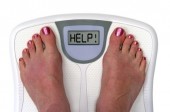Search Podcasts
The dangerous risks of hormone replacement therapy (HRT) might leave you looking for more natural treatments.
Additional Info
- Segment Number 1
- Audio File healthy_talk/1508ht4a.mp3
- Organization Life Extension
- Guest Website Healthy Talk MD
- Length (mins) 10
- Waiver Received No
- Internal Notes NO GUEST
Listen in as Dr. Mike provides the answers to a wealth of health and wellness questions.
Additional Info
- Segment Number 5
- Audio File healthy_talk/1508ht3e.mp3
- Organization Life Extension
- Guest Website Healthy Talk MD
-
Transcription
RadioMD Presents: Healthy Talk | Original Air Date: February 18, 2015
Host: Dr. Michael Smith
It’s time for you to be a part of the show. Email or call with questions for Dr. Mike now. Email: AskDrMikeSmith@RadioMD.com or call: 877-711-5211. What are you waiting for? The doctor is in.
So, you know you can email me questions right now. Live. And, I can answer your questions live here. You can just email: AskDrMikeSmith@RadioMD.com or, you can call 877-711-5211.
Alright. I’m going to go first for a quick question and then I’m going to get into the MS question. The first question is, “Is Xylitol safe?”
Is Xylitol safe? Xylitol is a sugar alcohol that is more and more being used as a sweetener. It’s not technically an artificial sweetener because it is found in nature. It’s natural in fruits and veggies. So, technically speaking, it’s not artificial. So, you have two basic types of sweeteners. You’ve got real ones and fake ones, I guess. The real ones would be, obviously, anything from fruits and vegetables specifically pectin in the fruits and vegetables. And then you have the fake ones which is the stuff we definitely want to avoid, right? No fake sweeteners. All those. I mean, they’re just made in chemical labs and they’re hundreds of thousands of times sweeter than sugar and they’re just not good. Brain issues, nerve issues. No. No, no, no. So, we definitely want to avoid those.
So, Xylitol falls into the real ones because it comes from, you know, fruits and vegetables and it’s classified as a sugar alcohol. So, bottom line is, is it safe? We don’t really know yet. In a little bit. In small amounts, probably perfectly fine. But, here’s the problem in our food culture today. We don’t do anything in little amounts. I mean, in little amounts. Your body is so resilient, it’s amazing. So, almost anything in little amounts is probably fine, but we aren’t like that. We don’t do anything in small, little ways. We do everything big. Big, big, big, big. Right? So, that’s the real question.
So, is Xylitol safe? In small amounts, yes. As a matter of fact, in gum, for instance, it’s been shown to prevent cavities. Right? But, we still don’t have ultimate answers when it comes to the larger quantities which you’re starting to see in some of the sodas and sports drinks and energy drinks and stuff like that. So, that still remains to be found. I did find that there was, in the 1970’s, a study concluded—and I’m sorry. I didn’t write the reference here. A study concluded no ill-effects in humans after subjects consumed large quantities for one month. Now, I don’t have the number there but, overall, I think it’s safe to say that in small amounts, fine. Large amounts, we just don’t know about these sugar alcohols like Xylitol.
Okay. Let’s go to the main question here for this segment. “My mom and my older sister both developed MS—multiple sclerosis. Our family doctor is concerned because he says there is a genetic link. What can I do to protect myself?”
Now, that’s a really good question. I did some background research. I do know of one in particular vitamin that I’m going to talk mostly about because I just wrote an article on this for Life Extension and it had to do with Vitamin D.
Vitamin D is very important for nerve health. As a matter of fact, in this one study, people with lower Vitamin D levels had worsening MS symptoms. So, a study published in the prestigious Journal of the American Medical Association found that, compared to those with the highest blood levels, those with the lowest blood levels were 62% more likely to develop MS and have worsening MS. Sixty-two percent more likely to develop MS and have worsening MS for people with low Vitamin D levels.
So, this sounds like this is perfect for you, right? So, your doctor is concerned about the genetic link with MS, okay? And he should be and you should be, too. So, first thing I would do is I would get tested. Where is your baseline Vitamin D? Now, here’s where it gets a little tricky. I’m assuming this doctor who’s concerned, you know, you say he or she is a family doctor. So, I’m assuming allopathic conventional. Just like me--medical doctor. You know, the Vitamin D blood level that they’re going to focus on is way too low. Most conventional doctors think that an optimal Vitamin D blood level is somewhere around 30-40 and I think it’s nanograms per mil. So, if you get your Vitamin D blood level tested, you’ll get this number. They’re going to look for 30 to 40.
I don’t know. I actually find that to be way too low. Most of the research shows that the benefit of Vitamin D really starts when your blood level is around 50 to 80 nanograms per mil. So, first thing I would do is, I would have you tested. Since you don’t have it yet and we want to prevent it in you and it looks like, based on this one study from The Journal of the American Medical Association, that treating you with Vitamin D or using Vitamin D prophylactically would be the best way to prevent MS. So, get tested and you’re going to want to shoot for a blood level at least in that 50-80 range. Not the 30-40. But then, based on this study, keep in mind it also showed that people with MS that had low Vitamin D, did worse. So, let’s see, your mom and older sister should be tested as well and they should be on Vitamin D.
A recent study has quantified the impact of Vitamin D blood levels on the risk of MS relapse, so look at this. This is interesting. This is a different study. This is really speaking to your mom and older sister now. For each four points—for each four nanogram per mil increase—for each four point increase in Vitamin D blood level, the risk for MS relapse is reduced by 12%. That’s from the Annals of Neurology, August, 2010. I’m going to repeat that. That’s important for your mom and your older sister. So, for you, we’ve got to get you on Vitamin D, right? Because we want to prevent it. Shoot for that 50-80 nanograms per mil. For your mom and older sister, we want to get them on Vitamin D as well because that original study in The Journal of the American Medical Association found that people with the lowest Vitamin D level, not only are you at risk for MS, but if you have it, you’re going to have worse MS. But, here’s a study from the Annals of Neurology, August, 2010, showing that if I simply increase your mom’s Vitamin D blood level and your older sister’s Vitamin D blood level by just four points--four nanograms per mil. That’s about, say, 500 units of Vitamin D will do that. One thousand units of Vitamin D will do that easily. If I simply do that—four points. I can decrease the risk of relapse of MS by 12%. I mean, come on. I mean, that’s awesome information and what gets me is this from 2010. And listen, I don’t know your family doctor, but he’s concerned but yet, he didn’t know about Vitamin D.
You guys, it took me just a couple of minutes on PubMed to find this stuff. You know, when I was writing the article for Life Extension about MS and Vitamin D, I mean, it wasn’t that hard to find this information. So, maybe for you, this is your opportunity to educate your doctor, you know? If he or she is open to that, you take this kind of information. Go to PubMed. Search in the search box, “Vitamin D and MS” and you’ll see a lot of stuff pop up. But, specifically look for the study in The Journal of the American Medical Association and the one in the Annals of Neurology, 2010. August 2010. Pretty impressive. Vitamin D. Very important for MS.
This is Healthy Talk on RadioMD. I’m Dr. Mike. Stay well. - Length (mins) 10
- Waiver Received No
- Internal Notes NO GUEST
- Host Mike Smith, MD
Listen in as Dr. Mike provides the answers to a wealth of health and wellness questions.
Additional Info
- Segment Number 4
- Audio File healthy_talk/1508ht3d.mp3
- Organization Life Extension
- Guest Website Healthy Talk MD
-
Transcription
RadioMD Presents: Healthy Talk | Original Air Date: February 18, 2015
Host: Michael Smith, MD
It’s time to “Ask Dr. Mike”. Do you have a question about your health? Dr. Mike can answer your questions. Just email: AskDrMikeSmith@RadioMD.com or call now: 877-711-5211. The lines are open.
Oh. So, my first question is about dieting. “I am one of those lifelong dieters. I just can’t stick with any of them. My problem is, I get hungry and I’m not satisfied—ever. Is there any hope for me?”
Well, I think, yes. There’s hope for you. And that’s my answer and I’m sticking to it. There is hope for you and I’m going to give you some suggestions. I don’t think this is an uncommon story. You know, many years ago, I actually had a weight loss business. It was called “Diet Basics” and as you can tell by the name, with Diet Basics, I was really trying to help people balance energy intake and energy expenditure. Trying to create a negative number every day. I mean, your weight every day is determined by a very simple equation. Your weight equals calories in minus calories out. If you’re eating too much and not burning enough, every day you’re developing a positive calorie reservoir and you’re going to gain weight. If you’re burning more than you’re eating, it’s a negative number and you’re going to be burning reservoirs and you’re going to lose weight. Now, obviously, it’s a simple equation, but that doesn’t mean it’s easy to manipulate it, right? I just want to make sure that’s clear. But, you can’t deny it. It’s simple math. Calories in minus calories out is: if it’s a positive number, I gain. If it’s a negative number, I lose. So, it is simple math, but it doesn’t mean that, you know, manipulating calories in, manipulating calories out—that’s where it becomes difficult.
So, let’s talk a little bit about this. So, you know, here you’re telling me that you’re a lifelong dieter and you even say here, “I just can’t stick with any of them.” But, that tells me you’ve tried probably everything, right? South Beach, Atkins, everything. All of these diets, ultimately, you know what they’re trying to do? They’re trying to get you to eat less. I mean, when you really break down all of these diets, I know they can get very complicated and they write these huge books and it can get very confusing. At the end of the day, when you really look at what they’re doing--because trust me, I did this. It’s all about eating less. It’s about trying to help you remain satisfied as you are eating less. And, I think that’s the key thing. You even mentioned it here. You say, “I’m not satisfied—ever.” And that, I think, is really the issue. I think eating less, although that can be hard at the beginning—you get a little hungry and what have you. I’ve got some suggestions for that. But, although that can be hard, I think what really gets people—the cheating part of it. Just stopping the diet comes in when people are not satisfied. I mean, let me give you an example. I’m going to use me as an example. I love cheese. I love it. The stinkier the better. I love it. I love the texture of different cheeses. I love the smell. I just love and enjoy eating cheese. Matter of fact, I ate it so much I got a little food sensitivity to it, so I had to cut back. But I’ve reintroduced it slowly and I’m okay now. But if you were to tell me, “Okay, Mike. You’re going to go on this diet and you can have no cheese.” I mean, listen, I’m not going to be very satisfied on that diet. I’m not going to enjoy it. Even though I could probably stick with it, I’m just not satisfied. It’s not fulfilling. I’m not enjoying food anymore and it’s just not going to happen. So, I think you really hit the nail on the head here where you talk about not being satisfied. I think it’s easier to deal when you’re a little bit hungry. What’s hard is being satisfied on a diet. So, you have to figure out: what are some of the things that you do enjoy in food? What smells do you enjoy? What textures do you enjoy? What flavors do you enjoy? I mean, really think about that and introduce those things and introduce them with healthy versions. I mean, you can do that. Or, if there’s not a healthy version, you maybe just have to introduce the unhealthier version—just on a rare occasion--to help you stay a little bit satisfied. Maybe that’s all you need is just to get that little satisfaction here and there to stick with the diet.
So, look at smells, textures and flavors. Figure out which ones really talk to you. Which ones really satisfy you and then try to reintroduce them in healthy ways. Or, if you can’t do it healthy, okay, fine. Do the unhealthy way, but just on a rare occasion.
So, those three areas: smells, textures and flavors. Okay?
As far as the hunger, you know, yeah. You’re eating less, so you’re hungry. I mean, it’s pretty simple. So, what are some of the best ways to kind of control that hunger? Protein. Now, high fat will do it, too. High fat, especially in the morning, will help to kind of keep down hunger. That’s why that new craze with Bulletproof Coffee where, you know, you take coffee. You put butter and some oil in it. It does. It works. But, a healthier way to control hunger is with protein. So, just have a lot of protein on hand. You know, seeds, nuts, whatever. Beans, legumes. Whatever you want to do. Just have a lot of protein as snacks. So, find ways to be satisfied with smells and texture and flavor and really get some protein to control that hunger.
And then, remember this: if all of that doesn’t work, well then, maybe you’re the person that simply needs to exercise more. Burn more. Rather than controlling the calorie “in” part of the equation, maybe you need to focus on the calorie “out”—the energy expenditure part—more. That might help as well.
Alright. So, yes, there’s hope. Right? Be satisfied. Eat more protein and then always remember: exercise is important. So, there you go. That was number one.
Number two. I think I’m okay here. “My son was diagnosed with ADHD. Our doctor wants to start medication, but I don’t want that. Are there other options?”
Okay. So, what I did to answer this is, I went to the Life Extension protocol for ADHD. I cannot tell you to not go on medications. I cannot tell you not to give your son the medication. I’m not your doctor. I’m just here as a friend. I’m just going to give you some suggestions, but please always talk to your own doctor before doing anything when it comes to supplement drugs, exercise, what have you. Your own doctor is who you have the relationship with. So, I’m just going to give you some suggestions from the Life Extension protocol on ADHD.
Let me just go through some of the supplements first that have been shown to help with Attention Deficit/Hyperactivity Disorder. First of all, pregnenolone is a hormone. I know when you talk about hormones, we don’t really associate giving kids hormones. But kids with the attention part being the worst have been shown to have low pregnenolone levels. So, maybe a low dose pregnenolone, if it’s really the attention issue. On the other hand, if the hyperactivity seems to be worse than the attention, a little bit of the hormone DHEA has been shown to be helpful. Now, of course, talk to your doctor. Get your son tested, right? Get these hormones tested. See where he’s at. He may not have a hormonal issue, but attention deficits are more associated with pregnenolone deficiencies and hyperactivity with DHEA deficiencies. So, check those out. Don’t forget the power of a basic multivitamin, multinutrient formula. Kids—their diets are not all that great. I’m going to assume you already know that and you’re getting your son off the sugars, off the artificial colors. That’s so important. Artificial flavors—you’ve got to get all those out. Fresh foods. Eighty percent plant, twenty percent lean animal. Very good. Try some pregnenolone, maybe. Maybe some DHEA. A multinutrient formula. Don’t forget the Omega-3 oils. Very important. There’s another one called phosphatidylserine, or PS caps. About 100 mg a day. Kids do very well with that. Magnesium—very important. Zinc. And then, don’t forget about probiotics. Healing the gut is very important with a lot of these attention deficit disorders. So, probiotics could also play a role as well. Go check out www.LifeExtension.com for the full protocol.
This is Healthy Talk on RadioMD. I’m Dr. Mike. Stay well. - Length (mins) 10
- Waiver Received No
- Internal Notes NO GUEST
- Host Mike Smith, MD
Ayurveda is one of the oldest holistic practices, and believes that everything on the earth is connected through balance.
Additional Info
- Segment Number 3
- Audio File healthy_talk/1508ht3c.mp3
- Featured Speaker Michelle Fondin, Author
- Book Title The Wheel of Healing: An Easy Guide to an Ayurvedic Lifestyle
-
Guest Bio
 Author of The Wheel of Healing: An Easy Guide to an Ayurvedic Lifestyle, of the upcoming book, Living the Eight Limbs of Yoga and owner of The Ayurvedic Path since 2008, Michelle Fondin practices as an Ayurvedic Lifestyle Counselor, yoga and meditation teacher.
Author of The Wheel of Healing: An Easy Guide to an Ayurvedic Lifestyle, of the upcoming book, Living the Eight Limbs of Yoga and owner of The Ayurvedic Path since 2008, Michelle Fondin practices as an Ayurvedic Lifestyle Counselor, yoga and meditation teacher.
She holds a Vedic Master certificate from the Chopra Center and has worked with Dr. Deepak Chopra and Dr. David Simon at Chopra Center events teaching yoga and meditation. Michelle also writes for Chopra.com.
She's a member of the National Ayurvedic Medical Association, The Association of Ayurvedic Professionals of North America and Yoga Alliance. Michelle lives in Herndon, VA. - Length (mins) 10
- Waiver Received No
- Host Mike Smith, MD
Learn how to soothe your emotional, physical, and spiritual health.
Additional Info
- Segment Number 2
- Audio File healthy_talk/1508ht3b.mp3
- Featured Speaker Michelle Fondin, Author
- Book Title The Wheel of Healing: An Easy Guide to an Ayurvedic Lifestyle
-
Guest Bio
 Author of The Wheel of Healing: An Easy Guide to an Ayurvedic Lifestyle, of the upcoming book, Living the Eight Limbs of Yoga and owner of The Ayurvedic Path since 2008, Michelle Fondin practices as an Ayurvedic Lifestyle Counselor, yoga and meditation teacher.
Author of The Wheel of Healing: An Easy Guide to an Ayurvedic Lifestyle, of the upcoming book, Living the Eight Limbs of Yoga and owner of The Ayurvedic Path since 2008, Michelle Fondin practices as an Ayurvedic Lifestyle Counselor, yoga and meditation teacher.
She holds a Vedic Master certificate from the Chopra Center and has worked with Dr. Deepak Chopra and Dr. David Simon at Chopra Center events teaching yoga and meditation. Michelle also writes for Chopra.com.
She's a member of the National Ayurvedic Medical Association, The Association of Ayurvedic Professionals of North America and Yoga Alliance. Michelle lives in Herndon, VA. - Length (mins) 10
- Waiver Received No
- Host Mike Smith, MD
Learn how you can heal your red, blotchy, dry, and itchy skin.
Additional Info
- Segment Number 1
- Audio File healthy_talk/1508ht3a.mp3
- Organization Life Extension
- Guest Website Healthy Talk MD
- Length (mins) 10
- Waiver Received No
- Internal Notes NO GUEST
- Host Mike Smith, MD
Listen in as Dr. Mike provides the answers to a wealth of health and wellness questions.
Additional Info
- Segment Number 5
- Audio File healthy_talk/1508ht1e.mp3
- Organization Life Extension
- Guest Website Healthy Talk MD
-
Transcription
RadioMD Presents: Healthy Talk | Original Air Date: February 16, 2015
Host: Michael Smith, MD
Alright. Again, 877-711-5211 or AskDrMikeSmith@RadioMD.com.
I’m going to skip the first question and go to the second one I had listed here because I’ve talked about this, I think, a couple times in the recent past. So, I don’t want to, you know, go over this over and over again too many times, but I think it’s a good question. So, I just want to quickly address it and we’ll move on to the next one. “I’m trying to explain to my friend that some of the research against the use of supplements is biased and not always conducted in a fair method. Can you help me educate her on consistent flaws of anti-supplement research?”
Well, sure. And I’ve talked about this before. I think I listed it as the “who”, the “what” and the “how” of research. Who is being tested? What’s being tested and how is it being tested? If you just keep track of those three questions, that will help you to analyze pretty much any publication that’s put out there—good or bad. By the way, there are some legitimate anti-supplement studies out there. I think that’s another issue, actually. I don’t always believe that supplements should be studied in the exact same way as a drug simply because of how they work differently in the body. But, that’s maybe a whole other segment. But here, specifically, when you see a headline, you know, “Fish Oils are Bad for the Heart” or “Fish Oils Don’t Help Heart Patients”, you know, whatever it might be, just ask yourself, the “who”, the “what” and the “how.”
The “who” in most of these studies are unhealthy Americans or sick people. People that are already sick. The reason that I brought up that fish oil one, there was a study that talked about how fish oils were not beneficial in heart patients even though that goes against all kinds of great, positive research with fish oil and heart patients, but, in this particular case, these were patients in this study who had already had one heart attack. I mean, we’re already kind of stacking the odds a little bit against the nutrients. So, in many of the cases, where you ask, “Well, who are they studying?” you’ll find that the answer, in many of these research studies, is they’re studying sick people—people who have already had a disease and they’re just simply trying to prevent another attack or, you know, a progression. So, you’re kind of stacking the odds there.
Number two is the “What are they studying?” What nutrient? So, in that case of the Omega-3s, turns out they were using a nice quality Omega-3, but they were using a low dose. So, they were using a low dose Omega-3. I think they were given, in that study, 500 mg and I’ve always talked about at least 2 grams a day of Omega-3 oils. If you’re dealing with something like a heart issue, you probably want it to be higher than that. You know, maybe 4 grams a day. So, in that particular study, the “what”—fish oil—was low dose. That’s what you’ll often find. That it’s either a low quality, it’s the wrong form of the nutrient, or it’s a low dose. That’s the “what.”
And then, the last one is the “how.” How are they actually collecting the data? You’ll find, in many cases, it’s with surveys. Now, surveys are okay. I mean, we use surveys ourselves here at Life Extension but we understand that we should never draw any absolute conclusions off surveys because they are somewhat unreliable, especially if you’re only asking the person one time in a ten-year timeframe, “Did you ever take fish oil?” Based on that one answer at that one time, if you put them in a fish oil group and you never ask them again, “Are you still taking fish oil?” that’s not a good way to do it. So, surveys are unreliable, especially if you don’t have proper follow up. So, that’s the “who”—usually sick people; the “what”—usually low quality, low dose supplements; and the “how”--surveys. And that’s usually what’s wrong with these anti-supplement studies.
Okay. So there you go.
Let’s go to the next question: “Is nutrient testing, like for neurotransmitters or minerals, reliable?” Yes and no. Don’t you love it when a doctor answers a question like that? “Well, yes and no. Maybe.” The idea of being able to test your body, whether through blood or urine or hair now—whatever it is--being able to test what’s in your system as far as vitamins and minerals and neurotransmitters--it sounds great. No doubt about that. You know, if I really want to know, if I really want to personalize my suggestions for people…Matter of fact, I just wrote a whole book on how to personalize nutritional regimens. It’s called The Supplement Pyramid. Yeah. I need to know that kind of information. So, I do rely on some of this type of testing but there’s a caveat in that and, you know, there’s a disclaimer that I have to throw out there that we haven’t really figured out perfectly how to use a lot of that data.
Let me give you an example.
You take a nutrient test that’s looking at minerals. You know, magnesium, manganese, copper, you know, etc. You know, when I collect that data from you, whether it’s from blood or urine—whatever it is—I collect that data, you know, and ultimately, I’m just looking at a one-time little snapshot of what’s going on in your system at that particular moment in time. So, it does bring in this question. “Well, how reliable are these really?” Let’s say in that snapshot picture, at that moment in time, your magnesium levels were low. Well, does that really mean you have a magnesium deficiency and I should be suggesting more and more magnesium? I mean, you see where some of the questions come in. I mean, if I could test your blood and your urine and your hair throughout the entire 24-hour period when you’re sleeping, awake, stressed, not stressed, and look at all of that data, that might be a little bit more helpful because I’m going to see the peaks and the valleys and I could average it out more. Maybe someday, with technology, we’ll be able to do something like that, but right now, we’re not there. We’re not able to do that, so we have to do the best we can and so we have to take these snapshot pictures. So, nutrient testing is awesome. It gives me a lot of information. It helps me to personalize my suggestions for people. It helps me to tailor my regimens that I build for people and even myself. So, yeah. It’s awesome. But, we have to understand the limitations and we’re just getting these snapshots. So, I do think it’s worth it, especially if you’re willing to get tested on a continuous basis and watch. You know, get a baseline and see where you are a few months later and just keep following it and build that kind of database. If you’re willing to do that and you have the money, that’s great. That gives a lot of information. But, just one mineral test? There’s some issues there. Some reliability issues.
Okay. So, again, my answer. Is nutrient testing reliable? Yes and no.
Okay. Let’s go to the next one. I think. Oh, this is a big one. I’m going to skip that one. I’m going to go to one about Benadryl. The one I’m going to skip was about MS and about family risk and I’ll do that at another one because that’s going to take some time.
“How much Benadryl is an overdose? How much Benadryl is an overdose that can kill? Does taking large quantity damage organs?”
Benadryl is the brand name for a drug called diphenhydramine. It’s a histamine blocker, works against allergies. Yes. Listen. There are well-documented cases of people overdosing with Benadryl. Of course, that’s going to depend on how big you are and how often you’ve taken it, but, you know, high doses of Benadryl can cause blood pressure issues, lots of confusion, delirium. I know, working in the emergency rooms at a big county hospital in Dallas, Texas, they were often abused. You know, drinking with these types of histamine blockers can cause acute toxicity, make you feel high, that kind of stuff. So, yeah, you definitely can overdo it, but there’s no one dose or answer because it’s really based on how often you use it and so I would just stick with the suggested dosing on the packaging.
This is Healthy Talk on RadioMD. I’m Dr. Mike. Stay well. - Length (mins) 10
- Waiver Received No
- Internal Notes NO GUEST
- Host Mike Smith, MD
Listen in as Dr. Mike provides the answers to a wealth of health and wellness questions.
Additional Info
- Segment Number 4
- Audio File healthy_talk/1508ht1d.mp3
- Organization Life Extension
- Guest Website Healthy Talk MD
-
Transcription
RadioMD Presents: Healthy Talk | Original Air Date: February 16, 2015
Host: Michael Smith, MD
Dr. Mike: Okay, first question. I’m going to spend some time with this one because there’s a lot here. Let me just get into it. “Hi Dr. Smith, a year and a half ago I gained 25 pounds over a 2-3 month period. Every week, I was gaining 2 pounds. Then all of a sudden it stopped, but the weight stayed. At that time I did not change my eating habits, there was no more stress, etc… Nothing happened during that time to explain my weight gain. I had never had weight problems in my whole life before that. Would you know what has happened? What are the possible suspects?” She says: “Thank you so much. Looking forward to your help, Barbara Russ.”
If I can just summarize what’s going on here, there was weight gain. Pretty quick weight gain over a 2-3 month period and no one can really give you any answers, right? This is what we would call acute weight gain. In medicine, when faced with something like this, you know how when you do anything in life, you’re starting a new project or a new charity or a new ministry, whatever it is, you have a brainstorming session? Maybe with yourself or groups of people, whatever it is, and you start listing out things, listing out ideas. In medicine we do the same thing, Barbara. It’s called a differential diagnosis. It’s just a list of the possibilities. You create this list and from there, you start doing your best to weed out some of those choices. Let’s do that together right now. Let’s make a differential diagnosis list for acute weight gain. I’m just going to start listing them all. Some of the things are obvious and probably not what you’re dealing with, but you just list it and get it all out there.
The first, most common reason for weight gain is pregnancy. I’m going to assume that you would know that. I guess you can’t always make that assumption. I’ve seen some of those TV shows where people didn’t know they were pregnant, but I think most people know. I’m going to list that, then take it off the list. Pregnancy is the number 1 thing, but we are going to take it off the list because it’s easy to test.
Number 2 would be low thyroid. This can happen for a variety of reasons: There could be an infection in the thyroid, for instance, it could be an auto-immune attack on the thyroid, but you can knock out thyroid production pretty quickly. When that happens, you will gain weight. Why? Because the thyroid is the metabolic throttle. It runs your metabolism. If, all of a sudden, the amount of thyroid hormone decreases over a short period of time, quickly, that can cause some weight gain. That would be number 2, after pregnancy.
Number 3 on the list of acute weight gain is something called dysthymia. This is kind of like bi-polar disorder, where people have depression, then cycle to being really anxious and having lots of energy, then cycle back to depression. You have those two sides, or poles. Dysthymia is kind of like that but it’s not as bad. Dysthymia is cycling through a little bit of depression, maybe feeling a little blue, and then you cycle out of it and then back. That’s called dysthymia. It’s not as bad as bi-polar disorder, but it’s been known to cause acute weight gain. If you’re dealing with those kind of mood fluctuations, Barbara, that might be something to talk to your doctor about.
Dr. Mike: Diabetes can be associated with acute weight gain. You don’t see it too often, but it can. If you’re not maintaining your sugar level well and your insulin is getting all messed up, that can cause sugars to turn into triglycerides. That can build body fat. That can also be a potential reason. So far we have pregnancy, low thyroid, dysthymia, and diabetes.
Fifth on this list would be menopause. Menopause is not like a light switch. It’s not like: The light is on; you’re menstruating, ovulating, and all that. Then all of a sudden, one day, it just turns off. That’s not how it works. Men don’t know this, but all women know what I’m saying. It’s a process. Actually, before you hit full-blown menopause we call that perimenopausal or premenopausal. That can last years for some women. For some women it is only a few months. For some women it’s many years. For the women that experience perimenopause or premenopause over a very short period of time often can have some weight gain. So maybe we need to look at your estrogen levels, your progesterone levels, and your prolactin levels. Those are all your FSH levels and can be very important in seeing where you’re at in this part of life. That would be number 5.
Number 6 is something called Cushing’s disease. This is where you have high cortisol levels because you have a benign tumor that dumping out a lot of cortisol in your system. Cushing’s disorder, you might want to get your cortisol levels checked.
Next would be polycystic ovarian disease. When you have a lot of cysts in your ovaries it can cause something known as estrogen dominance. That means you are producing lots of estrogen but you are not producing a lot of progesterone to counterbalance it. Estrogen is a tissue builder. Estrogen’s role in a woman, for the most part, is to prepare you for pregnancy. It builds of the endometrium. It builds up the breast tissue. It develops the egg. If you have a lot of cysts in the ovaries sometimes you can over produce estrogen, you can over produce tissue build up and that can cause acute weight gain.
Number 8 would be liver disease. Sometimes, if you are gaining a lot of weight very quickly, it could be an engorged liver; what we call a fatty liver. As a radiologist, I’ve seen a lot of fatty livers on CAT scans. Most of the time people don’t even know they have it. It can be cause by alcohol, but there is also non-alcoholic fatty liver. If the liver is engorged that can cause you to put some weight on and there are a variety of reasons for that.
Next would be pituitary issues. The pituitary gland produces things like growth hormone and stuff like that. If there is a benign tumor in the pituitary gland excreting hormones that can cause acute weight gain.
Last on the list, because most people know if they have a history of it, is heart failure. If your heart isn’t working your fluid retention goes up, you get swollen, that kind of stuff. That can cause acute weight gain.
Dr. Mike: So, Pregnancy, low thyroid, dysthymia, diabetes, menopause, Cushing’s, cysts on the ovaries, liver disease, pituitary, and heart failure. That would be a nice list to work from, Barbara. So what would be your work up, then? How would I approach this after I made my list? The first thing would be to check all the hormones. I would do a good female hormone panel. Not just looking at estrogen, looking at all of it: Thyroid, estrogen, progesterone, all of that stuff. I would even look at growth hormone and prolactin, the pituitary hormones. I might test you for diabetes; maybe does a glucose tolerance test. Then I’d do an ultrasound looking at your ovaries, liver, and your heart to get a good picture if it’s anything internal, structurally, going on.
That’s how I would approach acute weight gain. Start with the differential diagnosis. I gave you a nice list, Barbara. Follow-up on some of those suggestions and please, check with your own doctor on this. Take that list in to your own doctor and see what he or she says. Hopefully that will help. This is Healthy Talk on RadioMD. I’m Dr. Mike, stay well. - Length (mins) 10
- Waiver Received No
- Internal Notes NO GUEST
- Host Mike Smith, MD
How can you bring awareness and help end unnecessary deaths and suffering from allergies and asthma?
Additional Info
- Segment Number 3
- Audio File healthy_talk/1508ht1c.mp3
- Featured Speaker Tonya Winders, Chief Executive Officer of Allergy & Asthma Network Mothers of Asthmatics
- Organization Allergy & Asthma Network
-
Guest Bio
 Tonya Winders, MBA, is currently the President and Chief Executive Officer of Allergy & Asthma Network Mothers of Asthmatics, the leading patient advocacy organization dedicated to ending the needless death and suffering due to asthma, allergies and related conditions.
Tonya Winders, MBA, is currently the President and Chief Executive Officer of Allergy & Asthma Network Mothers of Asthmatics, the leading patient advocacy organization dedicated to ending the needless death and suffering due to asthma, allergies and related conditions.
Tonya has over 16 years experience in leadership roles within the allergy and asthma industry. From sales and marketing leadership to managed markets access, she has worked tirelessly to ensure patients have access to effective diagnostic and treatment tools.
Tonya has worked closely with the leadership of the ACAAI & AAAAI to address challenges currently facing the integrity of allergy and asthma care throughout the U.S. while spreading awareness and preparedness messages to patients and caregivers. Personally, Tonya is the mother of five children, four of whom have asthma and/or allergies, ranging in age from 9-15 years old. She enjoys spending time with her husband of 18 years, Brian Winders, and coaching cheerleading. - Length (mins) 10
- Waiver Received No
- Host Mike Smith, MD
How do men and women differ when facing cold and flu season?
Additional Info
- Segment Number 2
- Audio File healthy_talk/1508ht1b.mp3
- Featured Speaker Tonya Winders, Chief Executive Officer of Allergy & Asthma Network Mothers of Asthmatics
- Organization Allergy & Asthma Network
-
Guest Bio
 Tonya Winders, MBA, is currently the President and Chief Executive Officer of Allergy & Asthma Network Mothers of Asthmatics, the leading patient advocacy organization dedicated to ending the needless death and suffering due to asthma, allergies and related conditions.
Tonya Winders, MBA, is currently the President and Chief Executive Officer of Allergy & Asthma Network Mothers of Asthmatics, the leading patient advocacy organization dedicated to ending the needless death and suffering due to asthma, allergies and related conditions.
Tonya has over 16 years experience in leadership roles within the allergy and asthma industry. From sales and marketing leadership to managed markets access, she has worked tirelessly to ensure patients have access to effective diagnostic and treatment tools.
Tonya has worked closely with the leadership of the ACAAI & AAAAI to address challenges currently facing the integrity of allergy and asthma care throughout the U.S. while spreading awareness and preparedness messages to patients and caregivers. Personally, Tonya is the mother of five children, four of whom have asthma and/or allergies, ranging in age from 9-15 years old. She enjoys spending time with her husband of 18 years, Brian Winders, and coaching cheerleading. - Length (mins) 10
- Waiver Received No
- Host Mike Smith, MD









